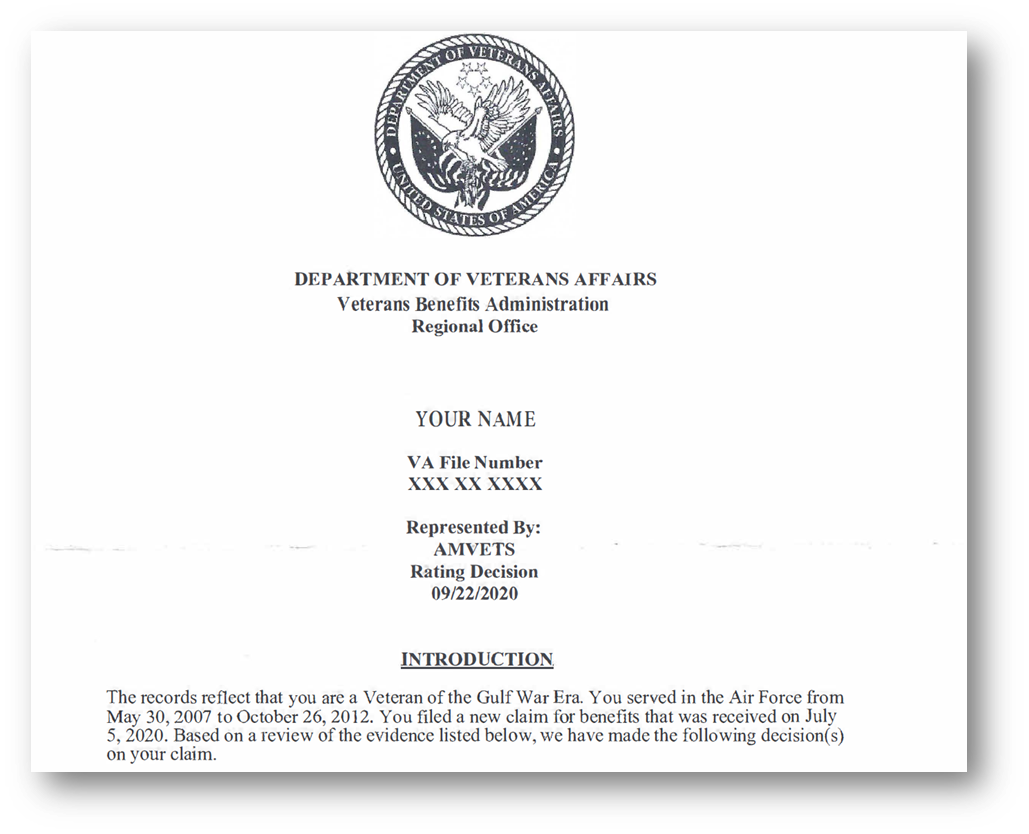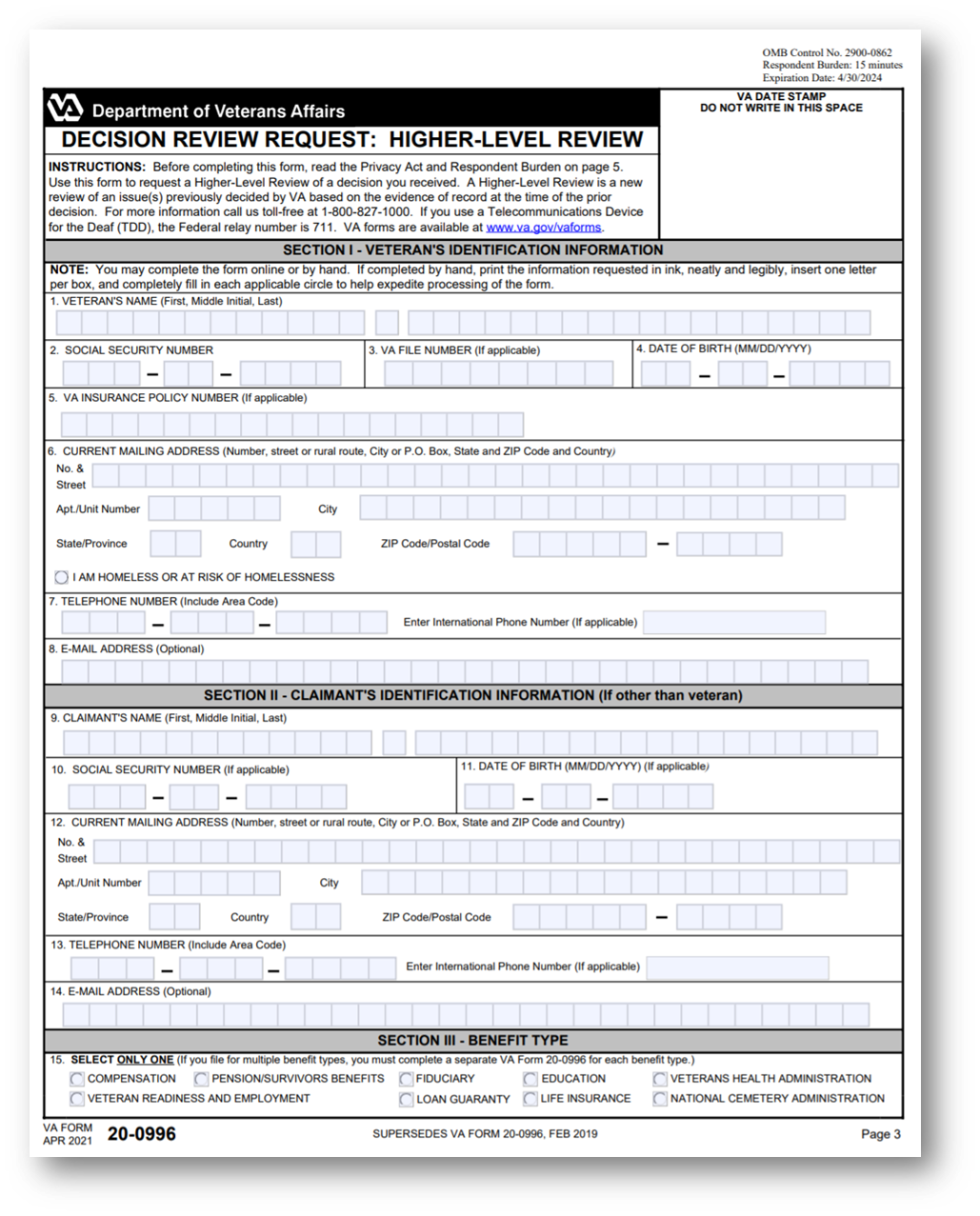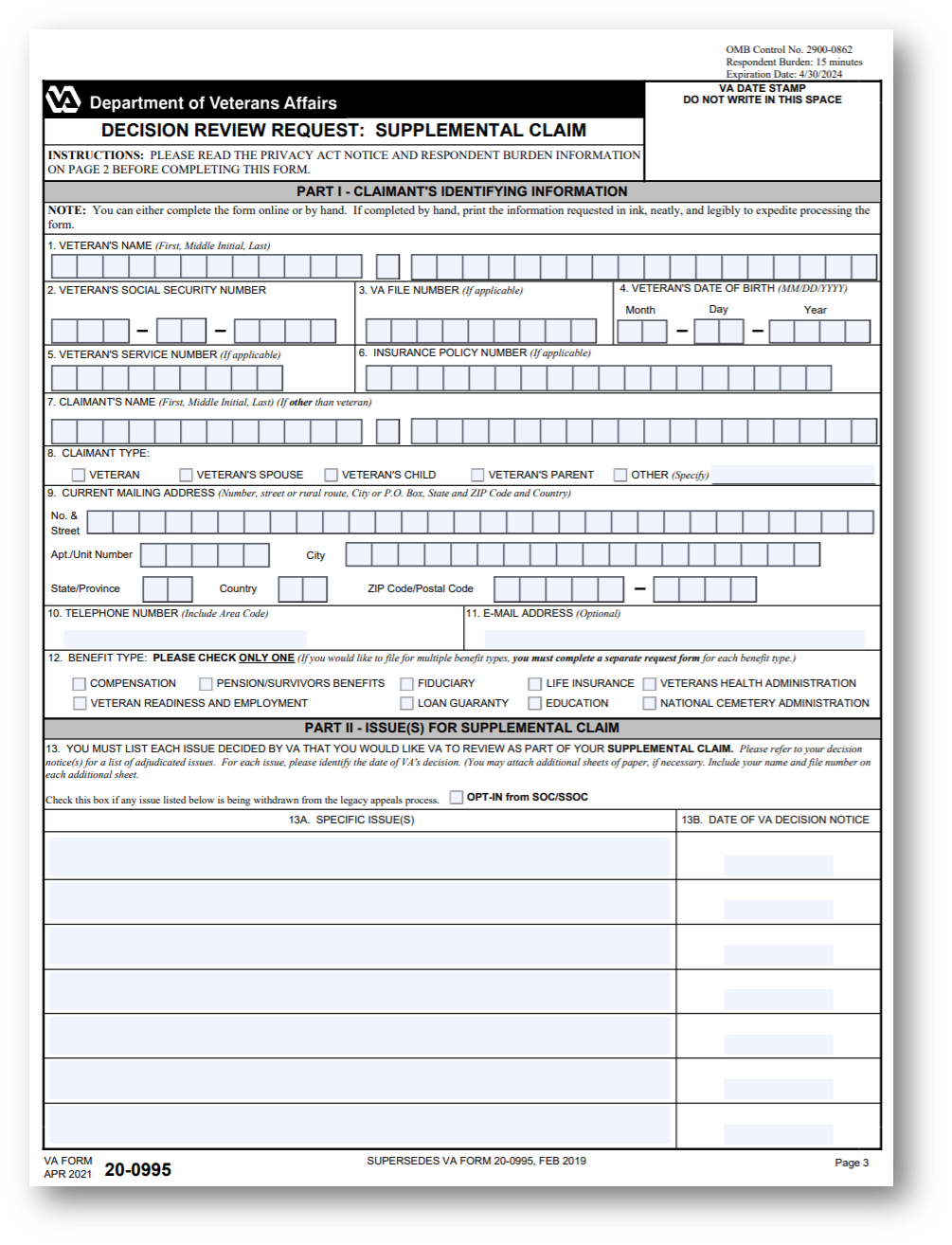Looking for Expert-Level VA Claim Answers?📱Call Us Now! 737-295-2226
If you’ve had your VA Claim Denied with Nexus Letter, stay tuned for a 3-step process to fight back (Legally & Ethically).
Being denied VA benefits you rightfully deserve can feel like a gut punch (we know—we’ve been where you are right now).
Stick with it, fellow veterans—the VA claim process is never over unless you quit.
It’s important to note that while a Nexus Letter can help strengthen your claim, especially in the absence of evidence in your service treatment records, it does not guarantee service connection.
Also, keep in mind that you might have done everything right and still got denied due to human error or a mistake—it happens all-the-time.
Or maybe you got a Bad C&P Exam and got denied even though you had a Nexus Letter from a private provider.
Whatever the reason for your VA claim denial, here’s a 3-step process to fight back legally & ethically.
- VA Claim Denied With Nexus Letter Step #1: Review Your Rating Decision Letter
- VA Claim Denied Step #2: File a Higher Level Review
- Step #3: File a Supplemental Claim
- Final Thoughts: Probative Value Matters
- What evidence has high probative value?
- What factors determine the probative value of evidence?
- Are You Stuck, Frustrated, and Underrated? WE CAN HELP!
- About the Author
Deserve a HIGHER VA Rating? WE CAN HELP.
Join our premier education-based membership program, VA Claims Insider Elite, connect with an expert-level Veteran Coach (VC) within minutes, and finally get the rating you deserve. Click the button below to get started.
VA Claim Denied With Nexus Letter Step #1: Review Your Rating Decision Letter

If your VA claim was denied with a Nexus Letter, the first thing you should do is review your VA rating decision letter in detail, specifically, the section headers marked “Evidence” and “Reasons for Decision.”
In the “Evidence” section, make sure your Nexus Letter is listed and was considered by the VA rater.
For example, it’s possible your Nexus Letter wasn’t submitted or maybe it wasn’t reviewed by the VA rater prior to making a rating decision.
Next, in the “Reasons for Decision” section, make sure to read in-detail the rationale and reason(s) for the denial.
Common errors include not considering some or all the evidence, discounting the probative value of the evidence, or making an illogical “less likely than not” argument against service connection by failing to consider all relevant facts.

For example, let’s say a veteran filed a claim for Sleep Apnea Secondary to PTSD with obesity / weight gain as an “interim” link for service connection.
The C&P examiner might write something like: “It’s likely that the veterans Sleep Apnea is due to her obesity / weight gain, however, Sleep Apnea is not caused by PTSD, so it’s less likely that the two are connected and the claim must be denied.”
This is a classic logical error that’s inapposite of the facts of the claim.
The veteran did NOT say her Sleep Apnea was “caused” by PTSD.
She said it was “aggravated” by Obesity / Weight Gain due to side effects of medications taken to manage her PTSD symptoms.
There’s a huge difference between “causation” and “aggravation.”
In this example, the C&P examiner completely missed the actual link for service connection and failed to address it in his exam.
In addition, the VA Rater simply copy and pasted the C&P examiners notes into the rating decision letter and denied the claim.
This claim should be awarded in favor of the veteran upon a Higher Level Review to correct the error made by the C&P examiner.
VA Claim Denied Step #2: File a Higher Level Review

After following Step #1 and reviewing your rating decision letter, the next step is to file a Higher Level Review online on VA.gov.
The VA Higher Level Review (HLR) is the first of three appeal options under the Appeals Modernization Act.
It allows you to “challenge” a VA rating decision WITHOUT adding new and material evidence to the claim.
This is a good first step if your VA claim was denied with a nexus letter because it allows you to ask a more senior level adjudicator to review the previous decision, and possibly overturn the denial due to an error or omission.
In addition, the Higher Level Review can be helpful following a negative C&P exam in which you received the dreaded “less likely that not” (less than 50% chance) that your disability was caused or made worse by your military service.
Why?
Because the new claims adjudicator can order a new C&P exam, which gives you a fresh look from a new examiner.
With the Higher Level Review, we still recommend a veteran writes a 1-3 page Memorandum for Record detailing your claim position, making sure to address any legal facts and arguments relevant to your case.
Are you STUCK, FRUSTRATED and UNDERRATED?
You are not alone! We are Veterans helping Veterans!
Become an Elite Member and work with our Veteran Coaches to get the rating you deserve!
Step #3: File a Supplemental Claim

If your higher level review gets denied, the next step is to file a Supplemental Claim using the VA Form 20-0995 and the VA Direct Upload Tool.
Unlike the Higher Level Review, the Supplemental Claim option allows you to submit “New” and “Relevant” evidence not previously considered.
- New evidence is information the VA didn’t have before the last claim decision.
- Relevant evidence is information that could prove or disprove something in your claim.
For example, maybe your Nexus Letter wasn’t actually uploaded to your claim the first time.
Or maybe you want to submit a new Buddy Letter from a competent and credible first-hand witness who can describe when and how your disability began in the military.
Using the Supplemental Claim option, you can attach documents to your Decision Review Request: Supplemental Claim (VA Form 20-0995) and submit them to the VA for consideration.
With the Supplemental Claim, we still recommend a veteran writes a 1-3 page Memorandum for Record detailing your claim position, making sure to address any legal facts and arguments relevant to your case.
Final Thoughts: Probative Value Matters

Not all Nexus Letters are created equally nor are they offered equal weight by the VA.
Thus, a privately prepared Nexus Letter does NOT guarantee service connection.
Veterans must ensure their Nexus Letter has high probative value:
“For a Nexus Letter to have high probative value in support of a veteran’s claim for VA disability benefits, it should be thorough, factual, and include convincing, evidenced-based rationale. The letter should also include all records reviewed as well as relevant medical research reports and BVA decisions used to help support the doctor’s independent medical opinion. The strongest nexus letters include a nexus statement with the words “at least as likely as not” assuming the independent medical provider believes the veteran’s condition is due to their military service (or another service connected disability).”
– Brian Reese, VA Benefits Expert and #1 Amazon Bestselling Author of You Deserve It: The Definitive Guide to Getting the Veteran Benefits You’ve Earned.
What evidence has high probative value?
Evidence may have more (or less) PROBATIVE VALUE.
Medical evidence is medical evidence.
All competent and credible evidence of record must be reviewed by the VA Rater (and considered) prior to making a VA claim decision.
However, not all evidence is created or weighted equally.
According to M21-1, Adjudication Procedures Manual, evidence has high Probative Value if it:
- Makes a matter material to the determination and
- Has sufficient weight, either by itself or in combination with other evidence, to persuade the decision maker about a fact.
What factors determine the probative value of evidence?
The following factors are important considerations for VA Raters in determining the probative value of evidence:
- Competency
- Credibility
- Thoroughness
- Precision
- Relevancy, and
- Date of the evidence
In addition, VA Raters must consider the key elements listed below when evaluating the probative value and relative weight of medical evidence such as a diagnosis/assessment, prognosis, or opinion on etiology/onset:
- Physician’s qualifications
- Expertise/specialty, and
- Experience
- Physician’s knowledge of the relevant history
- The accuracy or validity of history provided by the patient or examinee
- Review of records and other evidence, or
- Length of time the physician has treated the Veteran
- Context in which the medical evidence was created
- Treatment, or
- Substantiation of a medical disability claim
- Reasoning employed by the physician
- Theory
- Observation
- Practice
- Clinical testing
- Subjective report, and
- Conjecture
- Degree of specificity, and
- Degree of certainty
Are You Stuck, Frustrated, and Underrated? WE CAN HELP!
At VA Claims Insider, we help fellow Veterans celebrate LIFE CHANGE by getting them the VA disability rating and compensation YOU DESERVE by law.
And, you’ll get to work with a Veteran Coach (VC) who will lead you to VA claim success.
- We’re a company OF Veterans, BY Veterans, FOR Veterans! FOR Veterans, BY Veterans. We’re the largest community of Veterans Helping Veterans Worldwide™
- 25,000+ disabled veterans served in our Elite Membership program since 2016 with and average VA disability rating increase of >30%
- 4.8/5.0 Google Reviews rating across 2,000+ total reviews
Click HERE to Join the #1 Rated VA Claims Insider Elite Program and Start Today for FREE.
About the Author

Brian Reese
Brian Reese is a world-renowned VA disability benefits expert and the #1 bestselling author of VA Claim Secrets and You Deserve It. Motivated by his own frustration with the VA claim process, Brian founded VA Claims Insider to help disabled veterans secure their VA disability compensation faster, regardless of their past struggles with the VA. Since 2013, he has positively impacted the lives of over 10 million military, veterans, and their families.
A former active-duty Air Force officer, Brian has extensive experience leading diverse teams in challenging international environments, including a combat tour in Afghanistan in 2011 supporting Operation ENDURING FREEDOM.
Brian is a Distinguished Graduate of Management from the United States Air Force Academy and earned his MBA from Oklahoma State University’s Spears School of Business, where he was a National Honor Scholar, ranking in the top 1% of his class.



